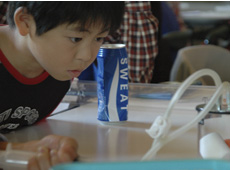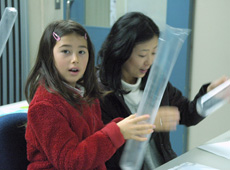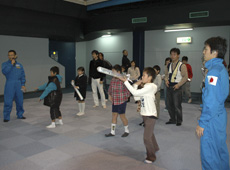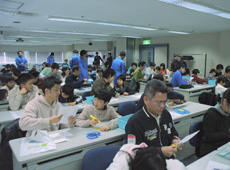Q. What motivated you to start Cosmic College?

A child engrossed in a science experiment
Since the Discovery Channel broadcasts many science documentaries, we need to keep boosting the number of science fans in order to survive as a company. We are a pay channel, so it's important for us to attract not only children but also their parents. To that end, we've been holding scientific experiment events for children and their parents since 2006, and we now have a solid reputation. However, if we only showed scientific experiments, people may think that science is all fun and games. We want people to deepen their understanding of science, and think about their dreams for the future, rather than thinking of science only as fun. At the same time, we want to be sure we are delivering accurate and timely information about what's happening in science today.
On the other hand, since last year was the International Year of Astronomy, the 400th anniversary of the first space observations by Galileo, it was a year to focus the public's attention on space. So we decided to hold a new scientific event with a space theme. When it comes to space, many people think first about NASA in the United States, but Japanese space technology - including the Japanese Experiment Module Kibo on the International Space Station - is also world-renowned. It's sad to say, though, that there are still many people who don't know about Japan's work on space technology and science. In order to make people feel closer to space, it's important to make them aware of what Japan is doing in the field and the progress we've made. For this reason, I thought it would be meaningful to create a program in collaboration with JAXA.



